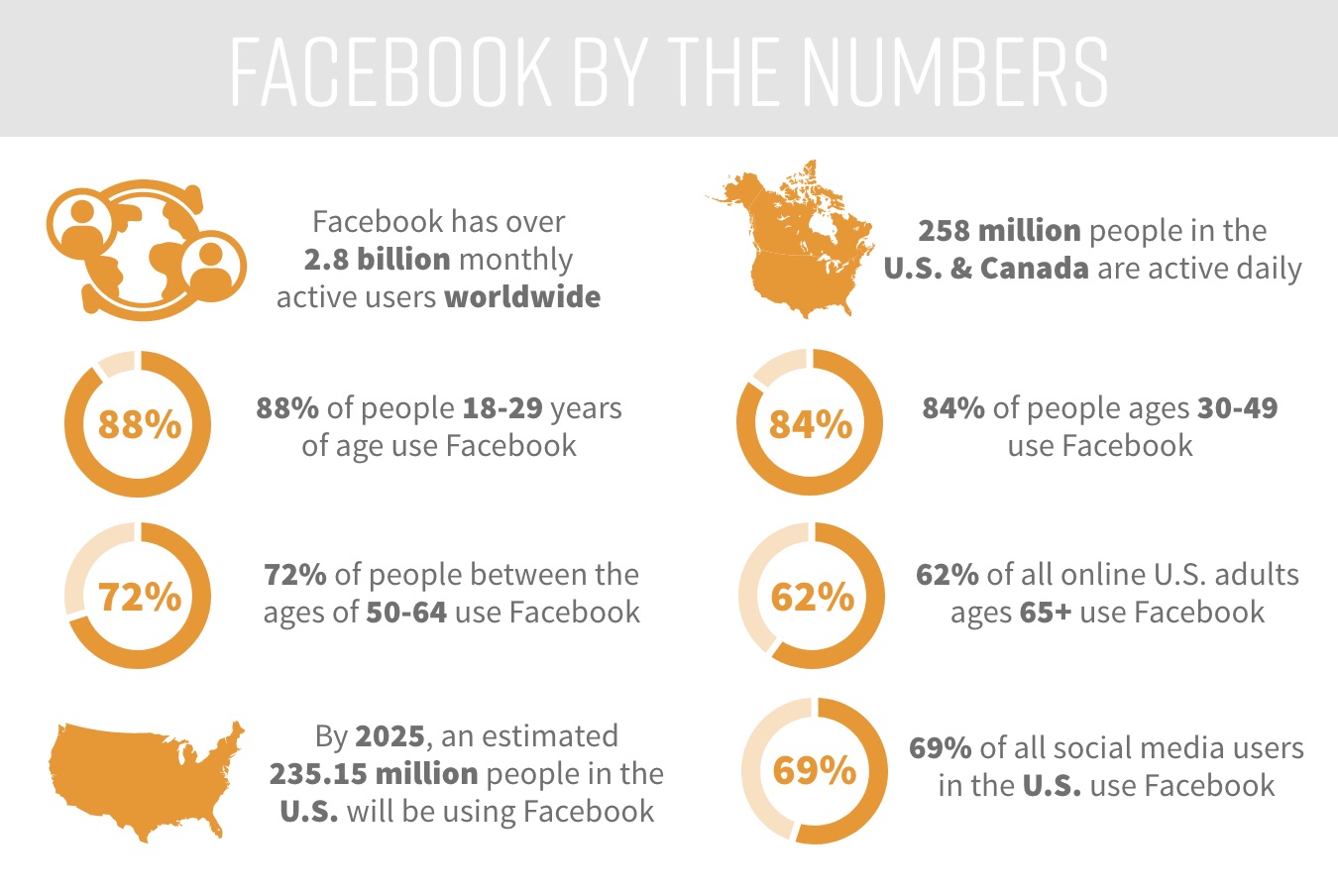Tracking the Elusive Social Media Strategy
Do doctors and dentists really need a Facebook page? How about an Instagram account? Absolutely.
Statistical evidence from numerous studies shows healthcare professionals should establish and maintain a social media presence as part of their overall online marketing plan—patients want a doctor who’s accessible, engaged, and up-to-date across all aspects of their practice. Once in place, however, the question that begs to be asked is how can the effectiveness of your social media marketing strategy be measured? How do you know if your involvement in social media is actually working towards generating leads?
Thankfully, there are several metrics that can help track the efficacy of your social media efforts. Of course, this includes the number of “Followers” you have and whether or not that number continues to grow can absolutely provide a good indication of social media success—but we want to go beyond your follower base. Using Facebook as our prime example, let’s cover three other helpful measurements.
Social Engagement
Social engagement refers to the ways in which the public interacts with your social platform(s). On Facebook, social engagement includes “Likes” (for your page and/or something you’ve shared), “Comments,” “Mentions,” and “Shares”—the ultimate form of marketing. For tracking purposes, the individual breakdown and/or sum of this data can be monitored on a regular basis using Facebook Insights (or the equivalent analytical tool of another social site). This allows you to see such statistics as how many new page likes you received, the number of unique people who have access to content associated with your page, which types of posts have generated the highest visitor involvement, and much more. Using this information, you can better refine your approach based on what’s working.

Social Referrals
Social referrals allude to how many people visit your website from a link located on one of your social pages. For example, if you create a Facebook post that includes a link to the latest blog entry on your website, each individual who follows that link to your practice’s site is considered a social referral. These statistics can be readily found in Google Analytics, helping you to identify which posts have amassed the most referrals, as well as track the increase in social referrals over time. Furthermore, Google Analytics enables you to determine how many referrals came from the desktop version of Facebook versus the Facebook app accessed on a mobile device.
Social Conversion
Social conversion is a term used to indicate that someone has not only followed a link from your social media page, but they have also completed an action, such as submitting a contact form. For instance, if your Facebook post links to a page about a fall special your practice is currently running, visitors who fill out and submit a contact form located on that page are considered social conversions. This is made possible by installing a Facebook Conversion Pixel that tracks how many people clicked on the link and initiated contact through the page they were directed to, ultimately enabling you to see exactly how effective your social media message was.
Final Thoughts to Consider
- The role of social media is to complement your comprehensive marketing strategy—your social platforms should reinforce your overall brand and messaging.
- Social media is an excellent stage for highly shareable content, and the potential to go viral exists—but remember, going viral on social media isn’t everything.
- Facebook Live and Instagram Live can be great ways to connect with your audience and increase conversions—try hosting Q&A sessions, showing behind the scenes looks of your facility and how you keep things COVID-19-safe, presenting what a consultation will be like, and more.
- Missing a key online marketing component (i.e. a website or social media presence) can be a red flag to many people—at best you’re outdated, at worst you might be hiding something.
- Just because you aren’t receiving warm leads immediately doesn’t mean your social campaign is unsuccessful—many people may follow your social media page(s) for months, or even years, before making contact with your practice.
- A number of individuals admit that while they want their doctor to be active on social media, they may never engage with certain platforms for confidentiality reasons—nevertheless, they are still watching the activity on your pages in hope of receiving valuable information.
How a Dedicated Social Media Team Can Help
The best way to maximize your social media marketing efforts—while you are busy running your elective healthcare practice and seeing patients—is to entrust your social strategy to a capable team of experts. The members of our social team at Rosemont Media are experienced in creating engaging posts, promoting new content, developing cohesive branding, tracking social media success, crafting effective paid advertising campaigns, and educating you on key social marketing activities. Furthermore, they also work in conjunction with our website marketing strategists to ensure that your social media plan is supporting your website and SEO marketing goals. At Rosemont Media, clients who partner with our social team find extraordinary value and benefit in the skilled services they provide.
If you have any inquiries about social media marketing or how to track the efficacy of your strategy, our experienced team will be more than happy to answer your questions and assist you in any way we can. Please contact Rosemont Media today.
Editor’s note: The original version of this post was published on August 11, 2015.